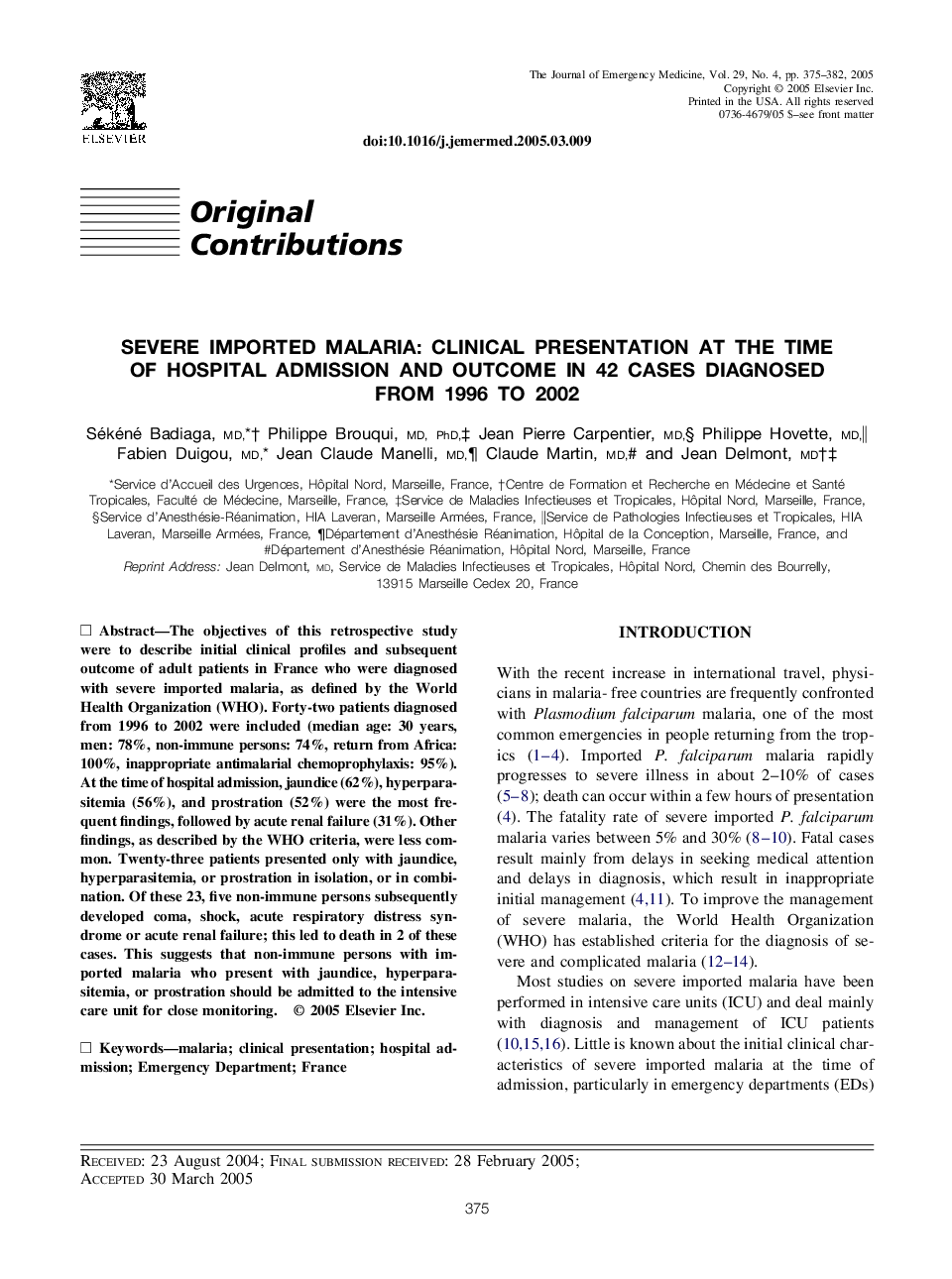| Article ID | Journal | Published Year | Pages | File Type |
|---|---|---|---|---|
| 10021618 | The Journal of Emergency Medicine | 2005 | 8 Pages |
Abstract
The objectives of this retrospective study were to describe initial clinical profiles and subsequent outcome of adult patients in France who were diagnosed with severe imported malaria, as defined by the World Health Organization (WHO). Forty-two patients diagnosed from 1996 to 2002 were included (median age: 30 years, men: 78%, non-immune persons: 74%, return from Africa: 100%, inappropriate antimalarial chemoprophylaxis: 95%). At the time of hospital admission, jaundice (62%), hyperparasitemia (56%), and prostration (52%) were the most frequent findings, followed by acute renal failure (31%). Other findings, as described by the WHO criteria, were less common. Twenty-three patients presented only with jaundice, hyperparasitemia, or prostration in isolation, or in combination. Of these 23, five non-immune persons subsequently developed coma, shock, acute respiratory distress syndrome or acute renal failure; this led to death in 2 of these cases. This suggests that non-immune persons with imported malaria who present with jaundice, hyperparasitemia, or prostration should be admitted to the intensive care unit for close monitoring.
Related Topics
Health Sciences
Medicine and Dentistry
Emergency Medicine
Authors
Sékéné MD, Philippe MD, PhD, Jean Pierre MD, Philippe MD, Fabien MD, Jean Claude MD, Claude MD, Jean MD,
